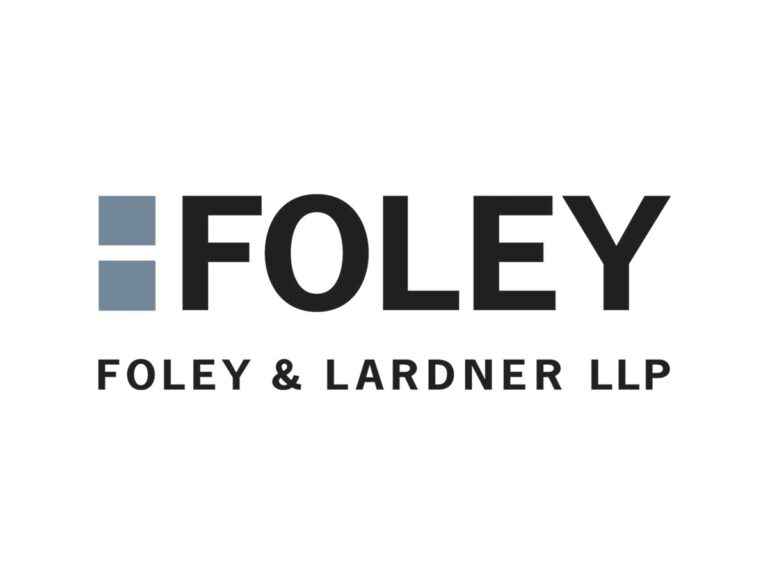Intellectual property protection is essential for emerging companies in the healthy food and beverage (“F&B”) sector to attract investors and stand out from competitors. To gain a competitive advantage, companies must understand and be intentional in building their intellectual property portfolio, which can include patents, trademarks, copyrights and trade secrets. A strong – or lackluster – intellectual property portfolio can make or break an emerging company.
Trademarks
A trademark is a word, phrase, symbol or design identifying the source of a product. Trademarks are typically used in the healthy food industry to protect brand names (e.g., “Beyond Meat”), stylized logos (e.g.,  ) and slogans (e.g., Oatly’s “Wow No Cow!”). Businesses can even obtain trademark protection for the unique packaging designs, color and shape of products that now represent the brand.
) and slogans (e.g., Oatly’s “Wow No Cow!”). Businesses can even obtain trademark protection for the unique packaging designs, color and shape of products that now represent the brand.
The healthy food industry is brand-driven: the ability to stand out on a grocery store shelf and persuade a customer to buy the product is key to business success. It is therefore important to ensure brand protection early and correctly. Legal counsel can help you identify the level of risk associated with adopting particular trademarks, develop a strategic trademark registration program, and enforce the company’s rights against infringers.
Patents
Patents protect new and innovative products or processes. Patents are issued by the federal government and allow patent holders to exclude others from making, selling, or using the new product or process for a limited period of time (usually 20 years). In the healthy restaurant space, companies are increasingly obtaining patent protection for the processes involved in the production and manufacturing of their products. For example, Impossible Foods has a patent that protects the process of creating veggie burgers. Additionally, General Mills holds patents for several of its products and processes, including the process of creating shelf-stable foods from nut butter. Restaurant companies have also obtained patents to protect novel and ornamental designs such as the shape of a beverage bottle or the unique appearance of a candy bar. For example, Chobani has a design patent covering the unique shape of its yogurt cups, and Kraft has obtained design patents for many of its uniquely shaped pastas, including pastas shaped like musical instruments and headphones. soccer. Emerging companies should consider whether their new product, including its packaging and design, or its processes, is eligible for patent protection and/or may infringe a third party’s patent.
Copyright
Copyright law protects original works of authorship, including literary, musical, and artistic works, as well as sound recordings, visual recordings, and even software. Copyright does not protect mere ideas – the work must be “fixed in tangible form,” that is, drawn, photographed, written, or otherwise recorded. Copyright is granted automatically upon creation of the work. However, to sue for copyright infringement, a business must register its creation with the US Copyright Office. Healthy food companies, including Impossible Foods, Chobani, and Nestlé Company, own registered copyrights in their product labels, excess packaging, package design, television advertisements, and other creative works. Notably, ensuring copyright protection on product labels and packaging designs can make it easier to sue generic brands that may copy elements of a product’s appearance.
Trade secrets
Trade secrets protect valuable information, including recipes, formulas, processes and techniques that give a company a competitive advantage. Trade secrets do not have to be innovative, just new and unknown information. Healthy food companies use trade secrets to prevent employees and former employees from disclosing their processes and recipes, to protect their business strategies and plans, and to protect supplier and customer data. For example, Bimbo Bakeries, Thomas’ parent company, filed a lawsuit against a former employee who took a job at Hostess. Bimbo Bakeries alleged the employee stole its secret formula to create the distinctive “nooks and crannies” that appear on Thomas’ English muffins. Ultimately, the court barred the former Bimbo Bakeries employee from working at Hostess.
To ensure trade secret protection, companies generally must establish the following: the secret information is not generally known in the relevant industry; the company has invested effort and resources in the development of trade secrets; secrecy has commercial value for the company; and the company has made efforts to maintain the confidentiality of information.
Conclusion
Emerging businesses in the healthy F&B sector will benefit from the identification, registration and consistent enforcement of their intellectual property rights. Seeking legal advice early and developing a strong intellectual property portfolio is essential to mitigate risks, maintain a competitive advantage and attract investors.
(View source.)
